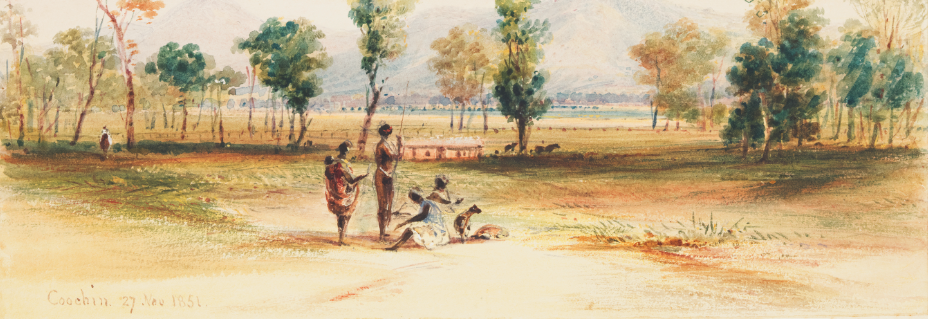Our team is dedicated
DIRECTOR

Dr Yorick Smaal
Director
B Arts (Honours First Class), MPhil University of Queensland, PhD University of Queensland
Griffith Centre for Social and Cultural Research
Yorick is a senior lecturer in history in the School of Humanities, Languages and Social Science and a member of the Griffith Centre for Social and Cultural Research. He is interested in the experiences of ordinary people and the institutions that govern their lives. Yorick is currently completing an ARC-funded DECRA project on ‘Boys, sex and crime’ and publishes on histories of sexuality and gender as well as crime and punishment and war and society.
DEPUTY DIRECTOR
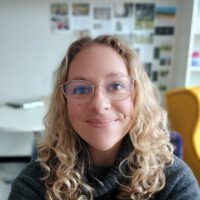
Dr Amy Way
Deputy Director
B Arts, MRes, PhD, Macquarie University, Sydney
Amy Way is a lecturer in History in the School of Humanities, Languages and Social Science and a member of the Griffith Centre for Social and Cultural Research. With expertise in Australian history, Aboriginal history, and intellectual history, she specialises in the history of human antiquity and deep time in Australia, especially its conceptualisation within geology, archaeology, anthropology and public discourse.
RESEARCH TEAM
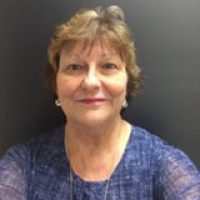
Dr Lee Butterworth
Research Fellow
B Arts (Honours First Class) Griffith University, PhD Griffith University
School of Humanities, Languages and Social Science
Lee Butterworth is a Research Fellow at the Harry Gentle Resource Centre. She completed her PhD titled ‘What good is a coroner?: The transformation of the Queensland office of coroner 1859 – 1959’ at Griffith University in 2012. Lee has previously worked on the Find & Connect web resource, the Australian Women’s Archive Project and the Prosecution Project. Lee’s research interests focus on child welfare in Australia and Queensland coronial law and history.
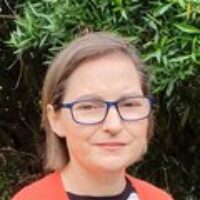
Jan Richardson
Research Assistant
B Arts University of Melbourne, GradDipLocFamAppHist and MPhil University of New England
Jan Richardson, a Visiting Fellow with the HGRC in 2020-2021, is a PhD candidate in the School of Humanities, Law and Social Sciences at Griffith University researching the presence of non-Indigenous ethnic minorities in Queensland prior to 1860. She is also a Research Assistant at the Harry Gentle Resource Centre working on the Centre’s database and biographies of early colonial residents.
PAST DIRECTORS

Distinguished Professor Mark Finnane
Director (2018-2025)
B Arts (Honours First Class), PhD Australian National University
Griffith Criminology Institute
Mark is a Professor of History in the School of Humanities, Languages and Social Sciences and a member of the Griffith Criminology Institute. He is a Fellow of the Academy of Humanities and Fellow of the Academy of Social Sciences in Australia. Currently, he directs the Prosecution Project, investigating the history of the criminal trial in Australia. Mark has published widely on the history of policing, crime, the criminal law, punishment and the social history of mental illness.
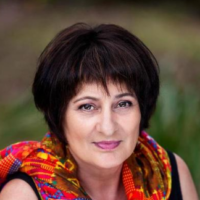
Emeritus Professor Regina Ganter
Founding Director (2016 - 2018)
B Arts (Honours First Class), GCert in Higher Education, PhD Griffith University
Fellow of the Australian Academy of the Humanities
Elected Member of the Australian Institute of Aboriginal and Torres Strait Islander Studies
Professor, School of Humanities, Languages and Social Sciences
Regina Ganter is a historian specialising in interactions between indigenous, Asian and European peoples in Australia. Having published widely in the field of cross cultural encounters, she is the author of The Pearl Shellers of Torres Strait (1994), Mixed Relations (2006) and The Contest for Aboriginal Souls (2018). Ganter has also produced a web-directory of intercultural encounters between indigenous people and German missionaries in Queensland for the Queensland Sesquicentennial celebrations in 2009 (German Missionaries in Australia).
CURRENT RESEARCH FELLOWS

Trish FitzSimons
Research Fellow

Robert Braiden
Research Fellow
Bachelor of Visual Arts in Film & Television Production, Griffith University.
Robert is an experienced Director, Writer and Producer, with a demonstrated history of working in television, film and social media. He was Associate Producer and Story Editor for ‘Big Brother Australia’ and the Writer/ Director of funded short films, winning awards locally, nationally and internationally.
Robert’s project will comprise three, twenty minute videos that examine the reasons as to why the penal settlement at Redcliffe was moved to the Brisbane River in 1825. It will examine who the decision makers were, the different personalities at work, and who had the final say.
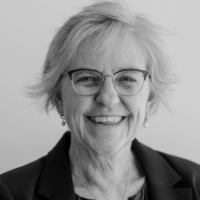
Belinda Daly
Research Fellow
B Education, Victoria College; Grad Cert in Education- Marine Studies, Queensland University of Technology; Grad Cert Applied Science – Environmental and Heritage Interpretation, Deakin Uni; Master of Philosophy (deferred)
Project title
‘Warders, wives and children – The families of St Helena Penal Establishment’
Women and children living within the St Helena Penal Establishment from 1867 to 1932 are largely absent from historical documentation, continuing the general absence of women from colonial era information. Yet this unique setting – where free settlers formed a micro community within an isolated Queensland penal settlement – offers new research opportunities to gain valuable insights into the lifestyle and issues faced by warder’s families on St Helena Island. Belinda’s project will create a database to identify and record these women and children and analyse the data to ascertain the roles performed by women, identify issues faced by families living in a colonial penal environment and determine women and children’s unique contribution to both St Helena Island’s Warder community and the wider St Helena Penal Establishment.
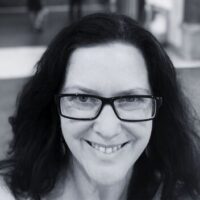
Dr Nicole Davis
Research Fellow
B Arts (Hons) in Ancient History University of Queensland, Masters of Museum Studies University of Sydney, PhD in History University of Melbourne
Nicole’s project will explore the experiences and networks of nineteenth-century Queensland businesswomen in a specific site of commerce and leisure – the arcade. It examines establishments owned or run by women and commodities or services provided in four arcades built during this period – in Brisbane, Charters Towers and Townsville. Sometimes disguised behind male relatives acting as faces of the businesses or historiography overlooking their participation, these women played a vital role in the Australian colonial economy and represented significant networks in global exchanges of goods, ideas, and people.

Dr Henry Reese
Research Fellow
B Arts (Honours First Class) University of Queensland, PhD University of Melbourne
Dr Henry Reese received a HGRC Visiting Fellowship in May 2021. His project is titled ‘The trial of Joseph Vos: A blackbirding scandal in 1890s Queensland’. Henry proposes to research and produce a scholarly article and short podcast series based on the life and 1895 trial of Joseph Vos. In the mid-1890s, Captain Vos claimed to have used recorded sound to entice several Solomon Islanders on board his barque, the William Manson. Copies of these recordings were later displayed as entertainment in Brisbane. Vos’ trial was one of the most prominent later blackbirding scandals of the century. He intends to trace the entangled histories of the phonograph and Vos in Brisbane, to explore the connections between sound recording, racism and colonial modernity in Federation-era Queensland.
PAST RESEARCH FELLOWS
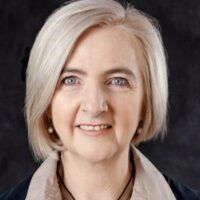
Jane Smith
Research Fellow
B Physiotherapy University of Queensland, Grad Dip App Sci (Library & Information Management) Charles Sturt University, Grad Cert Editing & Publishing University Southern Queensland
Jane Smith is a Visiting Fellow with the HGRC in 2024, and a librarian/archivist, author and editor. She is researching the life of Hannah Rigby, a seamstress from Liverpool who was transported as a convict to New South Wales in 1821–22. Hannah is known as the only female convict to stay in Moreton Bay when the penal settlement closed, and also has notoriety as a prisoner who was transported twice to Moreton Bay for colonial crimes after serving her initial sentence. Jane intends to publish a biography of Hannah Rigby.
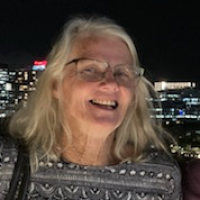
Dr Deborah Jordan
Research Fellow
B Arts (Honours) University of Melbourne, PhD University of Melbourne, Grad. Diploma of Women’s Studies University of South Australia
Some of the women from early colonial families who experienced Queensland’s transition from penal to free settler colony in 1859 went on to play a leading role in the call for women’s rights as the century progressed. This project explores the links between early colonisation and the later successes of the nineteenth century women’s movement. Several key families stand out, that is the McConnells of Cressbrook, the Harris family (later of Newstead House) and the Jordans. Other women included those who married into early settler families, such as Mary Allen who married into the Moginie family, or whom were convicts. Re-visiting the women’s stories will enrich and deepen our understanding of the distinct achievements of the early women’s movement in colonial Queensland.

Dr Dorothy Wickham
Research Fellow
B Arts (Honours) ACU, MPhil ACU, PhD University of Ballarat
Dorothy Wickham is a Director of a successful boutique publishing house, educator, author and historian. She joins the HGRC as a Visiting Fellow for 2022. Dorothy intends to create a comprehensive database and biographical sketches of the immigrants on the Artemisia that arrived in mid-December 1848 carrying the first free settlers from Britain to Queensland. On board were 42 married couples, 32 male children, eight infants under 12 months, 28 females aged between 1-14, 42 single men, and 20 single women.
Dorothy’s project aims to provide new connections and interpretations and to craft an inclusive narrative where the workers and tradesmen, women and children, are visible and audible providing (where possible) personal historical perspectives, experiences, and life stories. The database has the potential to unlock stories, linkages, and associations that have previously been overlooked and under-researched.
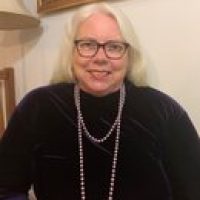
Dr Janis Hanley
Research Fellow
B Com University of Queensland, GCertPolAn and MAMedia (Hons) Griffith University
Ipswich was once the heart of Queensland’s thriving woollen manufacturing industry, from 1875 to 1983. The mills were the largest employers of women in Ipswich. The industry’s demise was a shock to Ipswich and signalled the devastating the loss of industry for this manufacturing city. This project traces the origins of the mills in pre-1860s Ipswich, exploring the threads enabling this industry, and the local pride the mills created. Ipswich Cotton plantations, the American civil war, the coal industry, Cribb & Foote’s and the railway workshops are all enfolded into this story. Janis Hanley, a Griffith PhD candidate, has been awarded a Harry Gentle fellowship to research the stories and visually capture these threads, mapping with their twists and tangles. This project is a follow on from Janis’s doctorial research into Queensland’s woollen heritage.
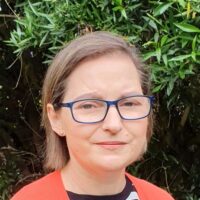
Jan Richardson
Visiting Fellow
B Arts University of Melbourne, GradDipLocFamAppHist and MPhil University of New England
Jan Richardson, a Visiting Fellow with the HGRC in 2020-2021, created a database of female convicts and ex-convicts, along with their husbands, partners and children, who were some of the first settlers to arrive in Queensland after the closure of the Moreton Bay penal settlement in 1839. In addition, she has collected family trees and photographs, and recorded the burial places of female convicts and their families, to create a lasting biographical and photographic memorial to Queensland’s ex-convict settlers.
View Jan’s project: Offenders, Paupers and Pioneers: Convict Women and Their Families in Pre-Separation Queensland.

Rod Pratt
Visiting Fellow
B Behavioural Science (USQ), Grad Dip Library Science (QUT), M Literary Studies (UQ)
Rod’s life-long fascination with Queensland history has led him to author and co-author almost fifty journal articles, books and book chapters, dealing with the roles of the military in Queensland. The topic of these publications range from the British red-coats posted to early Moreton Bay from 1824, the rise of Volunteer Forces in the 1860s, the Colony’s early school cadet movement, through to the service of Queensland Aborigines in the First A.I.F. His current project as Visiting Fellow with the Harry Gentle Resource Centre is “The British Army at Moreton Bay, 1824 to 1850: a biographical and historical database”.
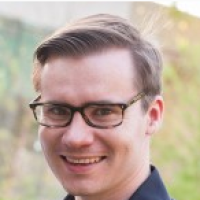
Timothy Roberts
Visiting Fellow
B Arts and M Arts University of Queensland, B Arts (Honours First Class) University of Sydney
Tim is a specialist in Australian art heritage, decorative arts and material culture to 1945. His project, Picturing the North: Representing Queensland before 1859, is the first major exploration of the art and artists of pre-separation Queensland. This project seeks to create an index of artworks created before 1859 that depict the people, places and events in the geographical region now known as Queensland; uncover biographical details of the artists that created the works; and provide a historical context to frame the art heritage during this formative period of Queensland’s development.
View Tim’s project: Picturing the North: Highlights of Early Art in Queensland

Dr Annemarie McLaren
Visiting Fellow
Annemarie McLaren’s PhD thesis from ANU, titled “Negotiating Entanglement: Reading Aboriginal-Colonial Exchanges in Early New South Wales, 1788–1835”, explored some of the people, networks, rituals, objects and activities through which the cross-cultural world of NSW was experienced and made. A focus on inter-cultural relations and ethnographic detail will also inform her project in the HGRC, “The Nundah Mission Project: Papers Relating to the German station, 1838–1848”. Her first article (awarded the 2017 Hakluyt Society Essay Prize) is forthcoming with Ethnohistory, and from August to January 2018, she will be an Endeavour Postdoctoral Fellow at the Museum of Archaeology and Anthropology, Cambridge. She is the Review Editor of Aboriginal History.
View Annmarie’s project: Peopling Early Queensland: The Archive of Brisbane’s Zion Hill Missionaries, 1838-1848
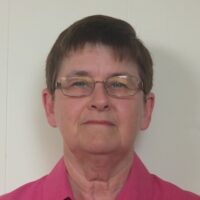
Dr Margaret Shield
Visiting Fellow
BArts University of Queensland, GDip Ed University of Queensland, MEd. (LOTE) University of New England, EdD University of New England, PhD Griffith University
Dr Margaret Shield researched the appointment of Crown Land Commissioners and documented their roles and responsibilities. Her project includes biographies of Stephen Simpson, Christopher Rolleston, John Bidwill, Maurice O’Connell and William Wiseman, who were among the first Commissioners appointed in the early years of the Moreton Bay Settlement and draws on archival sources to describe their interactions with both settlers and Indigenous people, the difficulties they encountered in fulfilling their roles and the contribution they made to the settlement of the land. The project also includes maps of Pastoral Districts and the location of early settlements.
View Margaret’s project: Crown Land Commissioners in Moreton Bay (1842-1859)
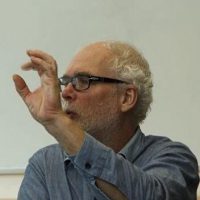
Dr Jonathan Richards
Visiting Fellow
B Arts (Hons), PhD Griffith University
Dr Jonathan Richards’ digital mapping project, as a Visiting Fellow in the HGRC in 2017, is based on Pre-Separation records of the Native Police held at the Queensland State Archives. Using historical maps and documents, and GPS software, Dr Richards located the places identified in these records and built a picture of Native Police movements and activities in Southeast Queensland.
View Jonathan’s project: Mapping and Tracking the Native Police in Moreton Bay and Nearby Districts (Southeast Queensland)

Dr Ray Kerkhove
Visiting Fellow
Dr Ray Kerkhove, a Visiting Fellow with the HGRC in 2017 and 2018, has worked on projects involves mapping the tide of frontier resistance across southern Queensland, pinpointing the details and locations of frontier ‘battles’, and early expeditions of the southern Queensland by lesser-known explorers including timber-getters, whalers and graziers. Dr Kerkhove’s projects reconstruct expeditions by these ‘casual explorers’, and merges ethnographic reports on Aboriginal war tactics with firsthand accounts and reminiscences to develop a more accurate image of the southern Queensland frontier and the conflicts that occurred there.
View Ray’s projects: The Casual Explorer: Mapping Unknown and Lesser-Known Expeditions of the 1830s-1850s and Mapping Frontier Conflict in South-East Queensland

Dr Anastasia Dukova
Visiting Fellow
BArts (Hons) University of Toronto, PhD University of Dublin, Trinity College
Dr Anastasia Dukova, Visiting Fellow with the HGRC in 2017, illuminates the key aspects of town life and policing of Brisbane in its transition years, from the arrival of the first immigrant ships at the Moreton Bay settlement in the 1840s, to the establishment of Brisbane as a colonial capital in 1859. Using an array of primary records, Dr Dukova examines the challenges the nascent colonial town policemen faced.
View Anastasia’s project: Policing a Colonial Metropolis: From Moreton Bay to Brisbane
PAST RESEARCH ASSISTANTS AND INTERNS

Constance Schoelch
Research Assistant
Constance Schoelch completed a Bachelor of Arts in English Studies and Sociology at the Johann Wolfgang Goethe University of Frankfurt in 2017. Taking a gap year, Constance is spending 2018 in Australia during which time she hopes to gain academic work experience at an Australian University. As a Research Assistant she currently administers the HGRC website and assists in researching and editing content. Constance is eager to increase her knowledge about Australian history and her work with the Centre will help meet that goal.

Emma Post
Intern
The Harry Gentle Resource Centre hosted Emma Post, a Griffith University Community Internship student, one day a week for 3 months in 2017. Emma, working under the supervision of Dr Ray Kerkhove, identified the 20 ‘most significant’ and most view-worthy sites of confrontation, injustice or conflict in the history of the Greater Brisbane area. The focus of the study was multicultural and multi-faith. Emma researched places and episodes that involved “outsider” groups – migrant communities, persons of non-Christian faiths, or Aboriginal groups that experienced injustices in integrating within the community.

Deklan Kelly
Intern
During Trimester 3 2017, Deklan Kelly, a Griffith University Community Internship student, undertook research for the Harry Gentle Resource Centre, under the supervision of Dr Margaret Shield. Deklan spent one day a week for 12 weeks transcribing and analysing archival documents from the NSW State Archives and Records related to the operation of the Border Police in pre-separation Queensland. He also conducted research at the Queensland State Archives on the impact of settlement on the Aboriginal inhabitants during the 1840s and 1850s. Deklan is a second year Bachelor of Arts student who is majoring in Literature Studies and History. He enjoyed his placement with the Harry Gentle Resource Centre and has volunteered to continue transcribing archival documents.

Amanda Spinks
Intern
Bachelor of Arts
Amanda graduated from Griffith University in 2017 with a Bachelor of Arts majoring in History. Her work for the Harry Gentle Resource Centre as a Research Assistant (HGRC) under the Griffith University Humanities Undergraduate Research Intern Program made a valuable contribution to the Centre’s digital archive. During her time at the Centre, under the supervision of Dr Lee Butterworth, Amanda researched the lives of two prominent Aboriginal warriors, Multuggerah and Old Moppy. Their biographies, which she co-wrote with Dr Ray Kerkhove, are published on the HGRC website. Amanda’s time spent working at the HGRC helped to improve and refine her existing research skills and techniques in preparation for her future study.

Indyana Horobin
Intern
Bachelor of Arts (Honours 1st class)
Indyana graduated from Griffith University in 2019 with a Bachelor of Arts with first class Honours. He was awarded a research internship as part of the 2019-2020 Humanities Undergraduate Research Intern Program (HURIP), and completed a short-term internship with the Harry Gentle Resource Centre. Under the supervision of Dr Lee Butterworth, Indyana created 60 biographies for the female convicts sent to Moreton Bay Penal Colony between 1826-1839, from a list of 144 women listed in Jennifer Harrison’s publication Shackled: Female Convicts at Moreton Bay 1826-1839 (2017). This resource provided a sound foundation for Indyana’s further research. Indyana has made a valuable contribution to the HGRC project and we are confident he will be successful in his future endeavours.

